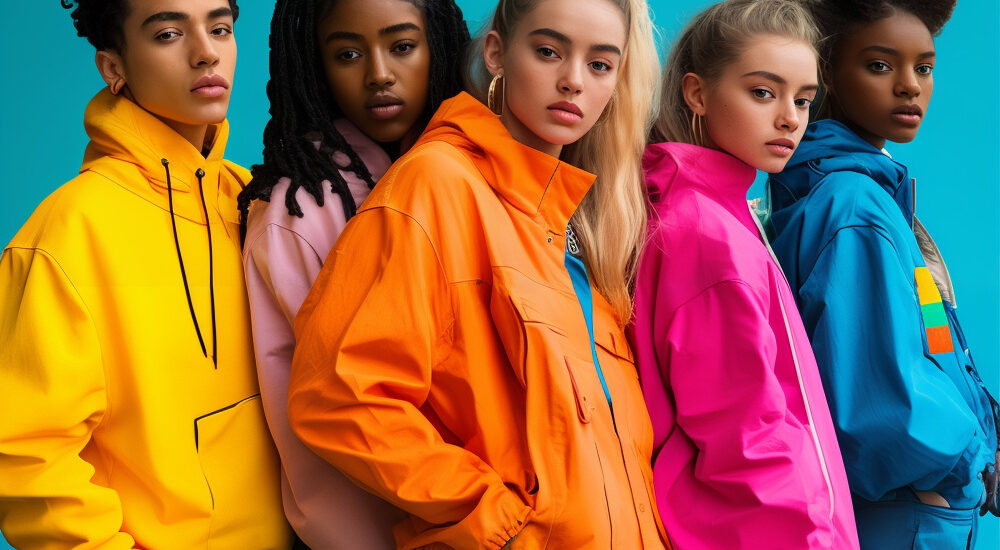


When it comes to reaching Gen Z, I’ll be the first to admit: the traditional advertising playbook is officially dead. If you’re like me, you’ve probably noticed how quick this generation is to swipe left on anything that feels inauthentic, out of touch, or—let’s be honest—just plain cringy. But don’t worry!
I had the opportunity to watch the Advertising Week session called Gen Z Hates Your Ads (Here’s How to Reach Them Anyway) and here are the highlights:.
Carson Davis-Tinnell (Communications Strategist, POV Agency): Specialized in public relations and brand strategy, Carson moderated the discussion.
Michael Vito Valentino (Editor-In-Chief, NowThis): Youngest Editor-in-Chief at NowThis, with expertise in Gen Z trends, digital content creation, and rebranding efforts focused on engaging younger audiences.
Janina Santillan (Director of Brand and Social Media, Adore Me): Leads digital marketing and innovative campaigns at the lingerie brand Adore Me, recently acquired by Victoria’s Secret.
Josh Glodoveza (Co-Founder and COO, Panel Agency): Expert in influencer marketing, with a focus on leveraging data to create long-term, sustainable brand outcomes.
Content Resonance with Gen Z:
Michael Vito Valentino highlighted how NowThis reinvented its content model for Gen Z by transitioning from passive scrolling to “tuning in” with bingeable, social-first content. This shift resulted in over 5.3 billion views across platforms.
Gen Z prioritizes authenticity, digestibility, and personality-driven content. They want short-form, engaging content that resonates on an emotional level, avoiding traditional brand-heavy marketing.
Gen Z hates being “preached to.” To connect with them, brands need to avoid appearing corporate or scripted and instead focus on relatable personalities and real stories.
Importance of Creator Partnerships:
Josh Glodoveza emphasized the importance of working with creators who genuinely love a brand’s products. Gen Z quickly recognizes when an influencer is “just doing it for the paycheck.” Authenticity in influencer marketing is non-negotiable.
Brands should look to existing brand advocates who are already using their products without sponsorship. This kind of partnership builds trust and long-term relationships with the audience.
Gen Z resonates with influencers who share their passion for a product, not those who are simply promoting for financial gain. Brands should foster long-term partnerships with influencers rather than one-off campaigns.
Adapting to Trends in Real-Time:
A major criticism shared by the panel was that brands often jump on trends too late. Janina Santillan mentioned that the slow corporate approval process can make brands miss the cultural moment.
Gen Z moves fast—six months is outdated for them. If a brand isn’t nimble enough to jump on trends quickly, it risks coming off as “cringy” or out-of-touch.
Josh Glodoveza urged brands to take risks and move quickly when something culturally relevant emerges. Being part of the conversation in real-time, as exemplified by Duolingo’s viral stunts, pays off.
Using Data to Stay Ahead of Trends:
Josh Glodoveza and Michael Vito Valentino both discussed the role of data in forecasting trends and fine-tuning content. For example, the term “brat” skyrocketed from 15% to over 5000% in relevance due to cultural moments, which led brands to use it in marketing campaigns.
Josh stressed that analyzing platform-specific trends (such as on Twitter or niche communities like Wattpad) can reveal where culture is heading. Brat culture rose, for example, from communities inspired by music like Charli XCX’s album.
Real-time content testing is critical for staying on top of evolving preferences. Michael explained that NowThis pilots new shows, analyzing results within 24 hours to assess what works and what doesn’t, enabling faster adaptation.
Gen Z’s Demand for Authentic Storytelling:
Janina Santillan shared how Adore Me’s Valentine’s Day campaign was inspired by Gen Z’s obsession with romance novels and BookTok. By aligning their campaign with what their audience already loved, the brand was able to create a genuine connection.
The key to resonating with Gen Z is listening to what they are interested in and making content they can see themselves in. Michael Valentino echoed this, saying Gen Z wants content to feel authentic and “reflect them”—whether it’s through diverse creators or content that feels real and approachable.
Balancing Risk in Partnerships and Marketing:
Gen Z values risk-taking in content, but brands must balance these risks with realistic expectations. The panel noted that there’s no guaranteed formula for viral success, and social media is volatile—what works today may not work tomorrow.
Janina noted that communication between brands and influencers is key, especially if a campaign isn’t performing as expected. Being transparent about data and offering solutions rather than just promises helps manage expectations.
What Brands Get Wrong:
Josh Glodoveza pointed out that brands trying to hop onto a trend often end up looking “cringy” because they are late to the trend. Gen Z knows when a brand is just trying to seem “cool” without actually understanding the cultural moment.
The panelists emphasized that brands must be willing to take high risks for high rewards in social media marketing. Waiting too long for corporate approval can kill the momentum.
Preparing for Gen Alpha:
The conversation shifted toward Gen Alpha, the generation after Gen Z, with the panelists noting that this group will expect even more boldness and technological integration. Janina mentioned that they are digitally native and will likely be drawn to experiences involving AR, VR, and immersive technologies.
Brands should be thinking now about how to prepare for Gen Alpha by giving them a seat at the table and empowering them to create and engage with content.
Michael remarked that it’s critical for brands to listen to younger employees (e.g., interns, assistants) to stay ahead of cultural trends and avoid falling behind. Leaders need to adopt a startup mentality, where innovation happens quickly.
At Collective 5 Entertainment, we’ve been addressing this challenge head-on. One thing that’s become clear is that the secret to engaging Gen Z is to entertain first and organically integrate your brand’s message. That’s why we specialize in creating mini TV shows for brands—whether it’s a rom-com, comedy, drama, reality TV, or even a murder mystery.
By making the content short-form, serialized, and story-driven, we captivate Gen Z’s attention. The key is to ensure the protagonist of the story is relatable to the demographic we’re trying to reach. From there, we seamlessly integrate the brand into the narrative, making it feel like a natural part of the story rather than an overt advertisement.
We also partner with a diverse range of filmmakers—from Oscar winners creating premium content to emerging Gen Z filmmakers who create lo-fi, selfie-style videos. This approach allows the content to feel both high-quality and authentic, a balance that resonates deeply with Gen Z.
The content then lives on the brand’s social media platforms and website, where it can be easily accessed and shared by audiences. It’s not about traditional advertising anymore. It’s about crafting stories that people actually want to watch. Contact us if you would like to know more: Jeff@C5Entertainment.com
The key to reaching Gen Z is through authenticity, nimbleness, and partnerships with passionate creators.
Brands must adapt to fast-changing trends, use data to predict future trends, and create content that feels real, engaging, and reflects Gen Z’s values.
Risk-taking and real-time adaptation are critical to success in the Gen Z marketing landscape, and brands must avoid lengthy approval processes that stifle creativity.
Gen Alpha is on the horizon, and brands need to stay forward-thinking, embracing new technologies and bold approaches to engage the next generation.




